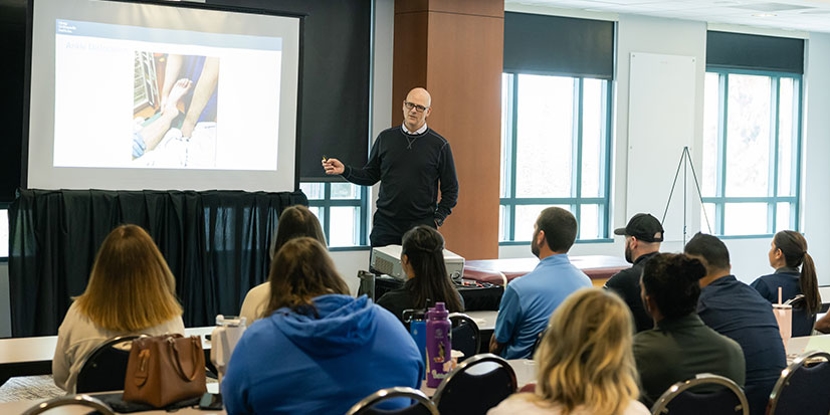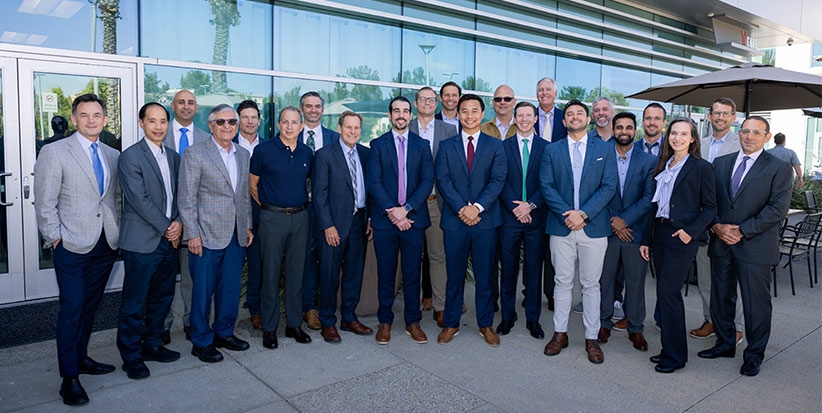Non-Clinical Skills Every Spine Surgeon Should Have
- Category: News
- Posted On:
- Written By: Joshua Schwind, MD

While it’s important for any surgeon to have the necessary clinical skills used to perform their jobs, there are key skills beyond clinical care every spine surgeon should have to ensure excellence.
We sat down with an orthopedic spine surgeon at Hoag Orthopedic Institute to find out what non-clinical skills every surgeon needs to have.
Q: Describe non-clinical skills.
A: Non-clinical skills can be described as four domains, which are cognitive, interpersonal, performance optimization, and professionalism. More specifically, there are seven strictly non-clinical skills that seem critical to develop to be a successful surgeon; these are situational awareness, decision-making, communication and teamwork, leadership, task management, fatigue/stress management, and professionalism.
Q: Can you give us an example of situational awareness?
A: The operating room is a prime example of a complex, continually evolving experience where situational awareness is of the utmost importance. The human brain has a limited capacity to process all of the information available to them, especially in the setting of a crisis happening during the surgery. A surgeon must be able process the information wisely and react quickly.
Q: Can you describe how a surgeon practices decision-making?
A: With thousands of articles being published each year, it poses a considerable challenge for the surgeon to remain up-to-date. Outcomes are optimized when the right procedure is performed on the right patient, for the right reason. To know and understand those three components takes diligence and adherence to the principle of being a “lifelong learner.” This helps the surgeon counsel patients as to the real risk-benefit ratio of any given treatment.
Q: Can you explain communication and teamwork skills in a surgical setting?
A: Communication has been shown time and again to be a major factor in malpractice claims, near-misses, and delays in diagnosis or treatment. Also, improved outcomes for high volume operating rooms can be directly tied to the experience and efficiency gained through the repetition of cases and tasks performed by a team of professionals from a variety of disciplines who work and communicate effectively, together.
Q: Describe why leadership and management skills are important for surgeons.
A: Doctors have historically held a privileged position in society. As respected members of the community in which they serve, they frequently become leaders and advocates at the individual, community, and national levels. They are looked to for direction and guidance for the hospitals where they work, and for the healthcare profession at large.
Q: Why is it important for surgeons to be good task managers?
A: Every day the surgeon must deal with numerous projects and tasks, all with different deadlines. Keeping track of the innumerable responsibilities can be tedious, but fulfilling duties, chiefly to the patient, in a timely manner is key and critical to a successful practice.
Q: What are the repercussions of fatigue and stress among surgeons?
A: Surgeons can face a variety of illnesses if they don’t properly manage fatigue and stress. The personal risk to the physician includes issues such as depression, anxiety, sleep disturbance, substance misuse, marital dysfunction, and suicide. Poor decision making, damaged working relationships and medical errors are the professional components of burnout, which is a widely recognized risk within the health profession.
Q: We would like to speak to you about professionalism as a spine surgeon. Why is this such an important non-clinical skill?
A: It is a privilege to be a surgeon, and to be entrusted by the public with inspiring hope, counseling and alleviating suffering. Practicing with integrity and adherence to the ultimate goal of compassionate care with respect for patient autonomy is crucial to improve patient care and elevating the profession.


